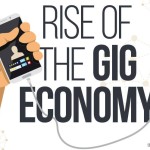In Malaysia, influencer marketing has developed as an important technique for firms looking to establish a strong digital presence. With a population exceeding 32 million, a significant portion of whom are active on social media, Malaysia provides a fertile ground for collaboration with influencers. This article delves into the realm of influencer marketing in Malaysia, shedding light on its fundamental aspects and demonstrating how brands can harness social media influencers to forge a compelling brand presence in this distinctive market.
Malaysia boasts a vibrant influencer ecosystem, with influencers spanning diverse niches such as beauty, fashion, travel, food, and technology. Malaysian influencers often command a strong local following, and their influence extends regionally, particularly across Southeast Asia. This regional reach can be advantageous for brands aiming to expand their footprint beyond Malaysia's borders. When selecting influencers in Malaysia, brands should consider various factors such as their target audience, engagement rates, and content quality. Additionally, understanding the cultural nuances and preferences of the Malaysian audience is crucial. Influencers who can genuinely connect with their audience, embody Malaysian values, and reflect the local lifestyle are more likely to resonate with Malaysian consumers.
Establishing genuine relationships with Malaysian influencers is critical to a successful influencer marketing campaign. Brands should work with influencers who share their brand values and can easily incorporate their products or services into their content. Malaysian influencers favor long-term ties since they allow for more meaningful and powerful collaborations. To run a successful influencer campaign in Malaysia, marketers must first establish clear objectives and KPIs. A well-defined plan is vital for increasing brand awareness, driving sales, and increasing engagement. Collaborating with influencers on fresh content ideas that appeal to the Malaysian audience can dramatically boost the campaign's effectiveness.
Numerous brands in Malaysia have successfully leveraged influencer marketing to enhance their brand visibility and drive sales. For example, local beauty brand Velvet Vanity collaborated with Malaysian beauty influencers, leading to increased brand visibility and sales. Similarly, e-commerce giants like Lazada and Shopee have partnered with Malaysian influencers to drive traffic and boost sales during major shopping festivals. In the food category, Samantha Lee is renowned for her creative food art and culinary creations, amassing a strong following on Instagram where she showcases visually appealing dishes. Daphne Charice, a food and travel influencer, highlights the best food spots in Malaysia and beyond, offering a mix of local and international cuisines.
In the fashion realm, Vivy Yusof, co-founder of the fashion e-commerce site FashionValet, is a prominent figure in the Malaysian fashion scene, known for her chic style and entrepreneurial endeavors. Jane Chuck, with her keen fashion sense and love for travel, presents a blend of fashion-forward outfits and breathtaking travel destinations on her Instagram feed. For travel enthusiasts, Fadhlur Rahman's Instagram showcases Malaysia's scenic landscapes and hidden gems, while KendyLife provides a quirky and humorous take on travel, offering a unique perspective on exploring Malaysia and beyond through his travel vlogs and posts. In the beauty sector, Alyia Athirah shares makeup tutorials, product reviews, and beauty tips with her audience, while Sazzy Falak's beauty brand and skincare tips are highly regarded in Malaysia, leveraging her status as a well-known actress and beauty influencer.
In the technology sphere, Amanz is a prominent tech influencer in Malaysia, covering the latest in technology news, reviewing gadgets, and offering insights into the tech industry. Vernon Chan, a tech enthusiast and content creator, features tech reviews, tutorials, and discussions on his YouTube channel and social media platforms. In the automobile industry, Paul Tan, a leading automotive journalist and influencer, provides comprehensive coverage of the automotive industry in Malaysia on his blog and social media channels. Drift Garage focuses on automotive lifestyle and car reviews, catering to car enthusiasts in Malaysia.
Not all influencers have the same level of influence. In recent years, there has been a substantial shift away from high-end influencers and toward micro-influencers. StarNgage uses the Pyramid of Influence to classify influencers based on their reach and importance. Celebrities and thought leaders are at the top of the pyramid, representing influencers with broad reach but limited relevance. These influencers reach a large audience but may not always be highly relevant to a certain niche. At the bottom of the pyramid, however, are influencers with a smaller reach but greater relevance, such as advocates and present clients. These influencers reach a more specific target and are frequently trusted by their followers.
Influencer Marketing in Malaysia | Influencer Marketing Agency Malaysia
(Source: Influencer Marketing Agency Singapore (starngage.com) )
In Malaysia, the social media influencer landscape can be broadly classified into three major groups. Mega-influencers: These people, including sports, actresses, artists, top models, and celebrities, make a living in other ways and use their influence as a supplementary source of revenue. Macro-influencers are professional bloggers, producers, or journalists who make a living primarily as influencers. They often have a significant following, ranging from 50,000 to 500,000, and average 5% to 20% engagement every post. Micro-influencers are regular consumers who have a significant influence but may be unaware of it or desire to become macro-influencers. They typically have 1,000 to 100,000 followers and have 25% to 50% engagement every post. Micro-influencers have the most brand relevance and resonance since their influence stems from their personal experience with a brand and strong relationships with their networks. Despite its success, influencer marketing in Malaysia encounters issues such as phony followers and influencer fatigue. Moving forward, trends such as the rise of micro-influencers, increased emphasis on authenticity, and the use of data analytics to analyze ROI are projected to impact Malaysia's influencer marketing landscape.
In conclusion, influencer marketing in Malaysia offers a lucrative opportunity for brands to establish a strong brand presence and engage with the Malaysian audience effectively. By understanding the local influencer landscape, selecting the right influencers, and executing well-thought-out campaigns, brands can leverage social media to achieve their marketing objectives in Malaysia's dynamic market.










